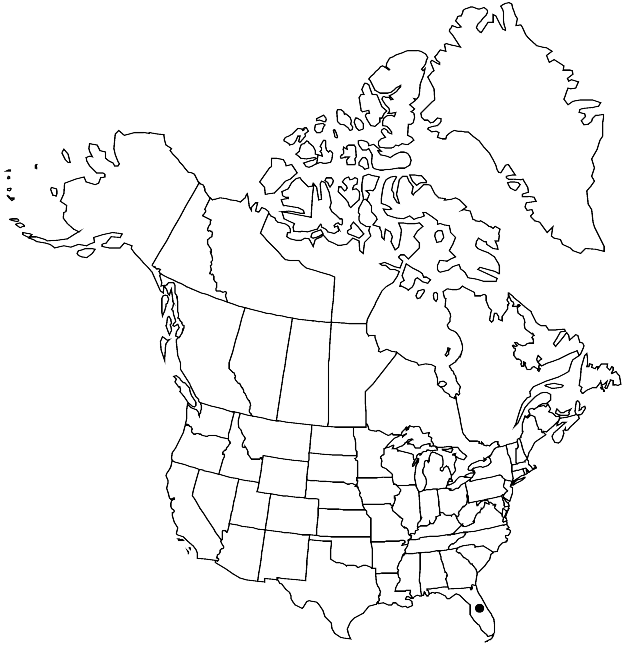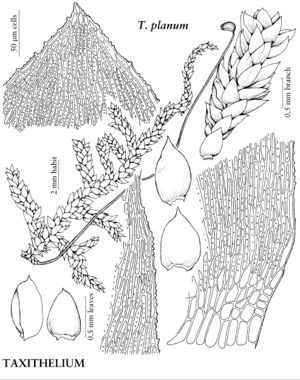Taxithelium planum
J. Linn. Soc., Bot. 12: 496. 1869.
Plants in thin to dense mats. Stems with branches 0.2–2 cm. Leaves sometimes with lateral leaves spreading and dorsal and ventral leaves appressed, contracted, smaller; supra-alar cells few to many, subquadrate, in 1 or 2 rows, often 1 row extending up margin. Specialized asexual reproduction rare, by filamentous gemmae. Perigonia and perichaetia on stems or base of branches. Capsule with exostome teeth 16, subulate, striolate; endostome basal membrane medium to high, segments equal to and alternating with exostome teeth, cilia 1–3, appendiculate. Calyptra smooth. Spores spheric, 12–22 µm, smooth to finely papillose.
Phenology: Capsules mature late summer.
Habitat: Tree bark, exposed roots, rotten logs
Elevation: low elevations
Distribution

Fla., Mexico, West Indies, Central America, South America, Asia, Africa, Australia.
Discussion
Selected References
None.
